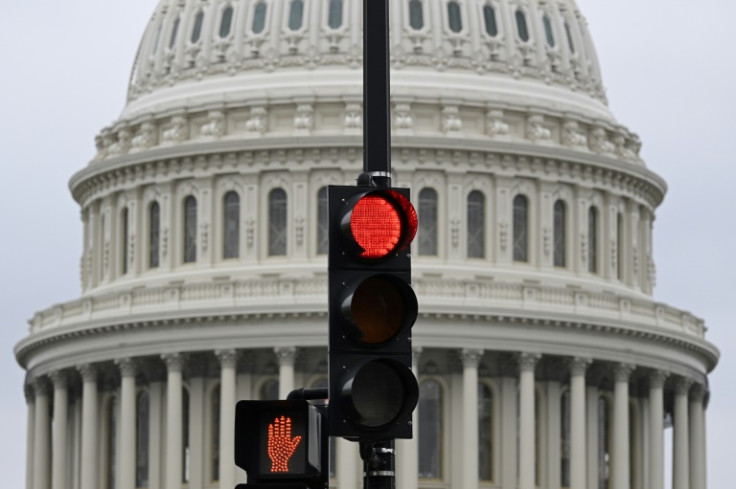
Congress on Thursday cleared legislation to avert a partial government shutdown and sent it to President Biden just a day before money to fund certain agencies was to run out.
The House voted 314-108 to pass what is called a Continuing Resolution, just hours after the Senate passed the measure in a 77-to-18 vote. President Biden is expected to quickly sign the measure before the Friday midnight deadline.
The combined efforts of lawmakers from both the chambers means the Food and Drug Administration and Department of Veterans Affairs will now have funds until March 1. The Department of Health and Human Services will be funded until March 8.
The Senate took a definitive stance Thursday, greenlighting a measure to prolong ongoing federal spending and thereby preventing an imminent government shutdown, the Washington Post reported.
The Senate's endorsement of the stopgap bill, marked by a decisive 77-18 vote, follows a recent bipartisan spending accord struck between House Speaker Mike Johnson and Senate Majority Leader Chuck Schumer earlier this month. This agreement prompted the decision to temporarily extend existing spending, affording both legislative chambers the necessary time to navigate and pass individual spending bills.
Within the Republican ranks, House Speaker Johnson had faced mounting pressure, particularly from the party's right flank, to reconsider his budget agreement with Schumer. The success of the bill in the Republican-majority House hinged on garnering Democratic support, an aspect underscored by Johnson amid the intricate dynamics within the party.
Rumblings have already started in the GOP's right flank. Rep. Lauren Boebert, R-Colo., called the resolution a "Democrat wish list" that "does nothing to secure our southern border or terminate the Biden regime's amnesty policies, and does nothing to address our out-of-control national debt."
"This Continuing Resolution is a slap in the face to every American suffering from Bidenomics, every American suffering from record high inflation, and every American that will suffer because their government decided to run up a $34 trillion dollar debt with no realistic plan to pay it back," Boebert said in a statement released Thursday evening.
"Nancy Pelosi would be proud of this reckless, bloated spending bill that ensures federal spending remains at the levels she set during her reign as Speaker," the GOP firebrand said in a statement. Pelosi, D-Calif., is now Speaker Emerita.
This marks the third occasion that Congress has opted to extend ongoing spending, revealing deep-seated disagreements among House Republicans over budgetary allocations, with factions on the right pushing for more substantial cuts. The echoes of the past reverberate as the previous House Speaker, Kevin McCarthy, faced removal in October for his agreement with Democrats on the initial extension of current spending. Johnson, now in the speaker's seat, faces scrutiny as he navigates the delicate balance of appeasing party members while skillfully sidestepping a government shutdown in this critical election year.
Addressing the decision to extend federal funding once again, Johnson, as per a report by The Guardian, acknowledged the need for additional time on the calendar to meet their objectives, recognizing that compromises are an inevitable part of the legislative process. While most House Republicans have refrained from publicly challenging Johnson's position, the potential for a revolt, even by a handful of Republicans, looms large in the closely divided House.



